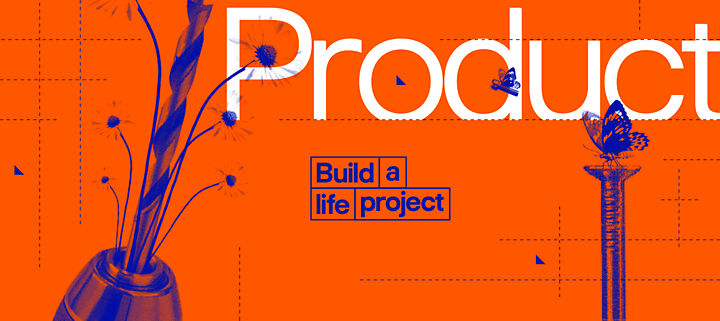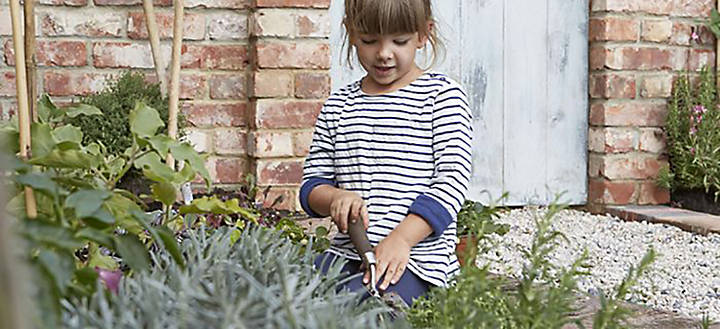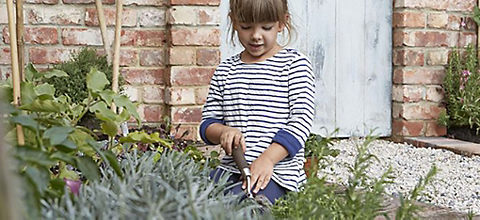Greener gardens
Helping to create a more sustainable world, one garden at a time.








At B&Q, we want to help everyone build a better home. And we know that the planet is home to all of us. So, we're introducing more sustainable products to help reduce our impact on the planet, one garden at a time.
As the UK’s largest garden centre chain, we’re in a strong position to help customers create more sustainable gardens and encourage nature in their gardens. Peatlands are vital in helping to protect natural habitats and tackle climate change. So, we've designed an effective alternative and, in November 2022, removed peat from our entire bagged compost range. To help take care of the planet, we also sell water butts, compost bins, nest boxes and a huge range of pollinating plants.
We’re committed to removing products that damage nature too. We’ve also removed peat-based compost from our British bedding plants and are working with our growers to remove peat from all new plants by 2025. We’ve also stopped selling patio heaters, disposable barbeques, non-native invasive plants species and the neonicotinoid pesticides: imidacloprid, thiacloprid and clothianidin.
At home, we can enjoy our gardens and be kinder to our planet by making choices that will help nature locally and globally. Growing some of our own food means less packaging. Flowers like lavender, sunflowers and crocuses provide food for butterflies and bees. If we all look after our own little patch of earth, together we can make a difference.
As pressure on our green open spaces increases, our gardens have become valuable refuges for wildlife. Hedgehogs, many species of bird, bees and butterflies depend on gardens for shelter and food.
Source: Royal Horticultural Society
How to make your garden kinder to the planet
Top tips for an outdoor space for birds, bees and other wildlife
Many of us want to do more to help the planet, and by making some environmentally friendly updates to your garden, it’s easy to create your own, more sustainable space. With our gardens covering more space than the Lake District and the Peak District combined*, everyone can do their bit to take care of nature.
1. Encouraging nature
In the last 30 years the numbers of some of the UK’s most important species like butterflies, hedgehogs and birds has been declining.*
Giving wildlife somewhere safe to rest and feed is a great way to encourage nature. Plants such as lavender and verbenas attract bees and butterflies, while ponds will encourage frogs to visit. Give hedgehogs a helping hand by building them a shelter. Adding a bird box or table is another great way of encouraging some wildlife into your space.
When you’re raking up your leaves in the autumn, instead of getting rid of them, create a pile in the corner of your garden. This will make the perfect home for all sorts of small animals, just be careful not to disturb or tread on it!
*The Wildlife Trust, 2019
2. Give bees a chance
Without insects our lives would be very different. So much of our food relies on pollinating insects helping to fertilise our plants, in fact a third of our food is pollination dependent!* Using pollinator friendly plants can encourage them into your garden.
Encouraging other insects, as well as pollinators, is incredibly beneficial for your garden and the ecosystem too. You can create a wilder area in a corner of your garden, which may be easier to look after as it won’t need much of your time. Plus, insects may use it to hide throughout their lifecycle, especially for the larval stages. It’s great to have food sources but we can also supply the right habitats for pollinators and other beneficial insects to grow and reproduce.
Getting rid of pesticides is an important step in being kinder to insects. If you want to keep slugs and snails away from your plants and flowers, use an upturned grapefruit skin or beer trap.
Wasps are also great for our eco system and as gardeners we should do our best to live in harmony with them.
*BBC Teach, 2019
3. Reduce your water footprint
Water is a precious and limited resource, but everyone can do their bit to reduce their water footprint.
Collecting rainwater using a water butt is both cost-saving and great for the environment. Did you know it also reduces your carbon footprint? According to Water Wise, each time water rushes into the drains, energy is used by water companies to clean, treat and transport it.
Rainwater is also ideal for acidic soil-loving plants like blueberries and heathers.
Fit your water butt with a lockable tap to prevent any accidents if toddlers, young children and pets are likely to go anywhere near it. Installing a water butt is easy. Follow our how to install a water butt guide.
Here are some other ways to cut back on using water in your garden:
-
Hoses and sprinklers can use around 1000 litres of water each hour, fitting a trigger nozzle onto your hose can reduce this by 50%.
-
Try using mulch or wood chips on your beds and borders to retain moisture, which means you have to water them less.
-
If you do have sprinklers, it’s better to use them early in the morning or later in the afternoon when evaporation rates are at their lowest.
4. Clear out the chemicals
Gardening without the chemicals means you’ll have pesticide free plants and veg, as well as protecting wildlife from any nasty harmful substances. Spraying can indeed kill off those pests, but it could also deter the predators that keep them at bay too. Biological controls are available for lots of garden pests including slugs and snails. Take a look at our new more natural gardening range Mama Terra for alternatives to chemicals in your garden. For alternatives to chemicals, meet Mama Terra, our new natural gardening range with everything from fertilisers to plant food and pest control. It's all designed to be kinder to nature, both in your garden and beyond.
Companion planting is also another way to reduce pest damage, but the biggest thing is be patient and let the natural cycles work. Using this holistic approach will encourage predators like ladybirds and wasps, who will remove the pests for you.
Create a barrier that keeps your plants safe by keeping pests away. Slugs, snails and caterpillars will struggle to make a meal of your plants if you use our protective wool matting or our wool pellets around the base of your plants. Get creative and sprinkle sharp sand, horticultural grit or even eggshells around plants to deter slugs and snails.
Using natural fertiliser helps you grow healthier plants, vegetables and fruit without the need for damaging chemicals. This also means they’re safer to eat! Leafmould is the perfect home-grown fertiliser, it’s easy to make and completely free. Read our how to make your own leaf mould guide for everything you need to know.
How to create a wildlife friendly garden
Learn more about how your garden could help nature
















